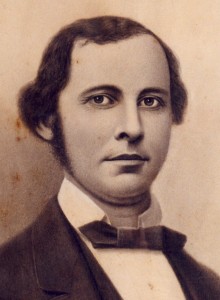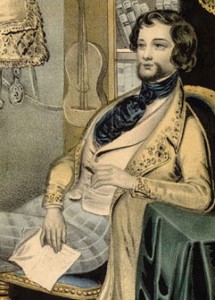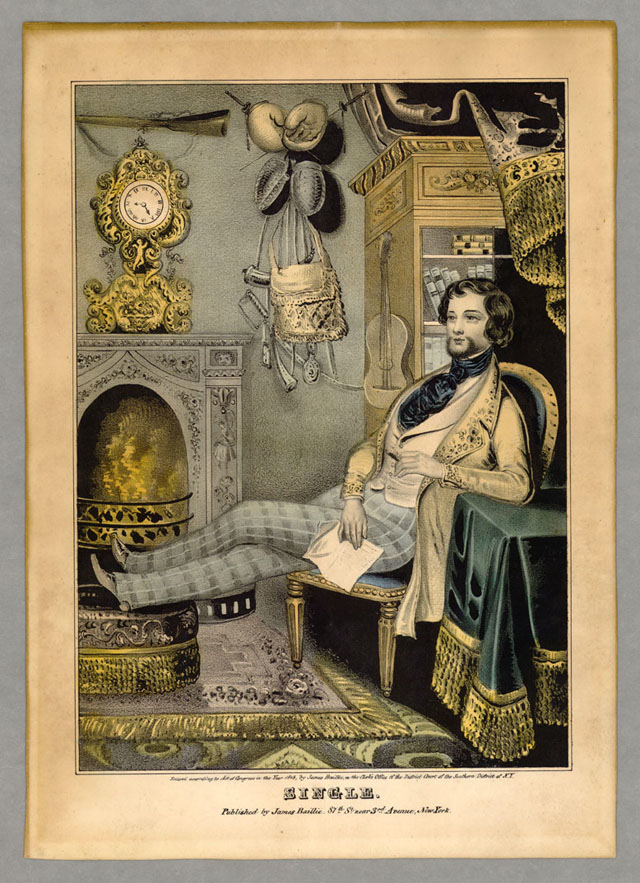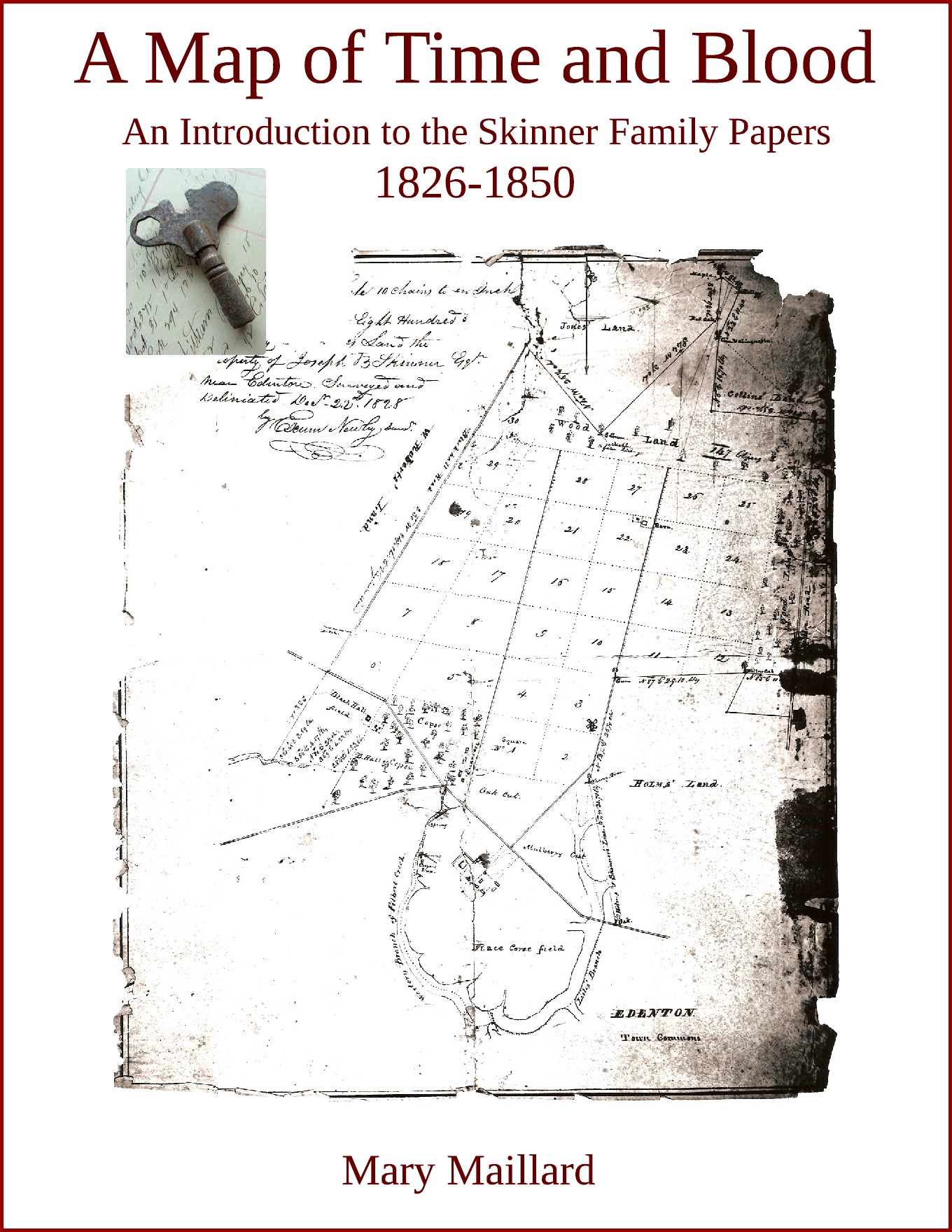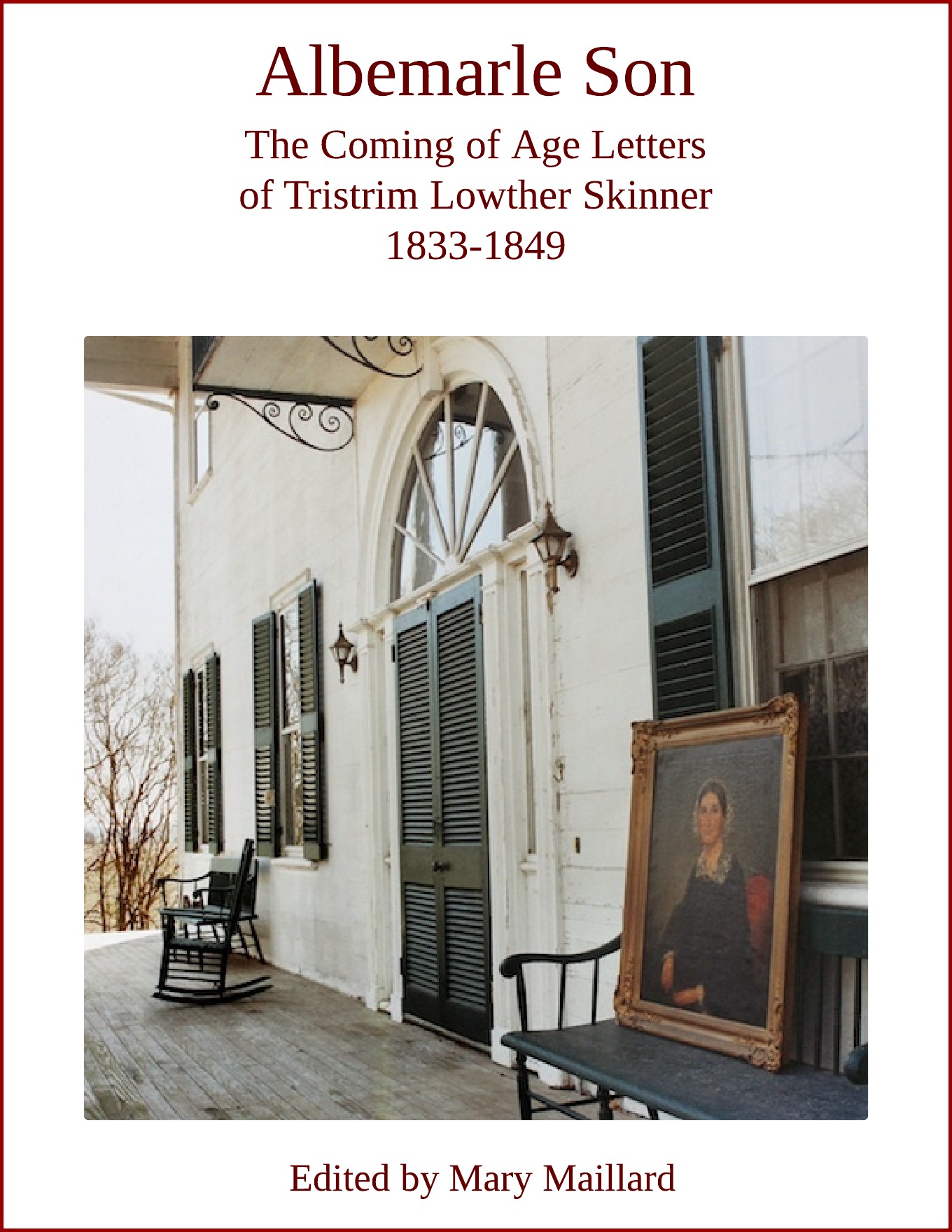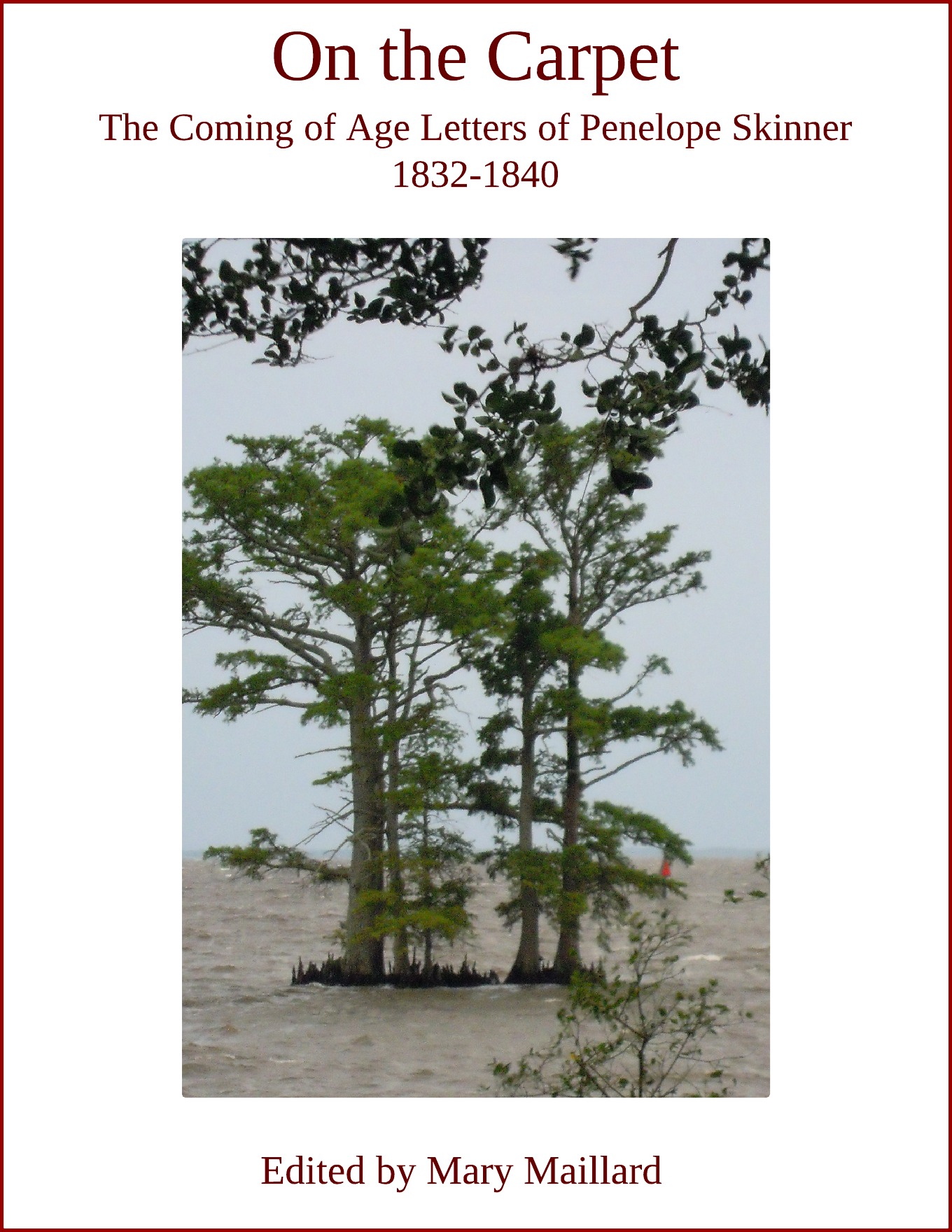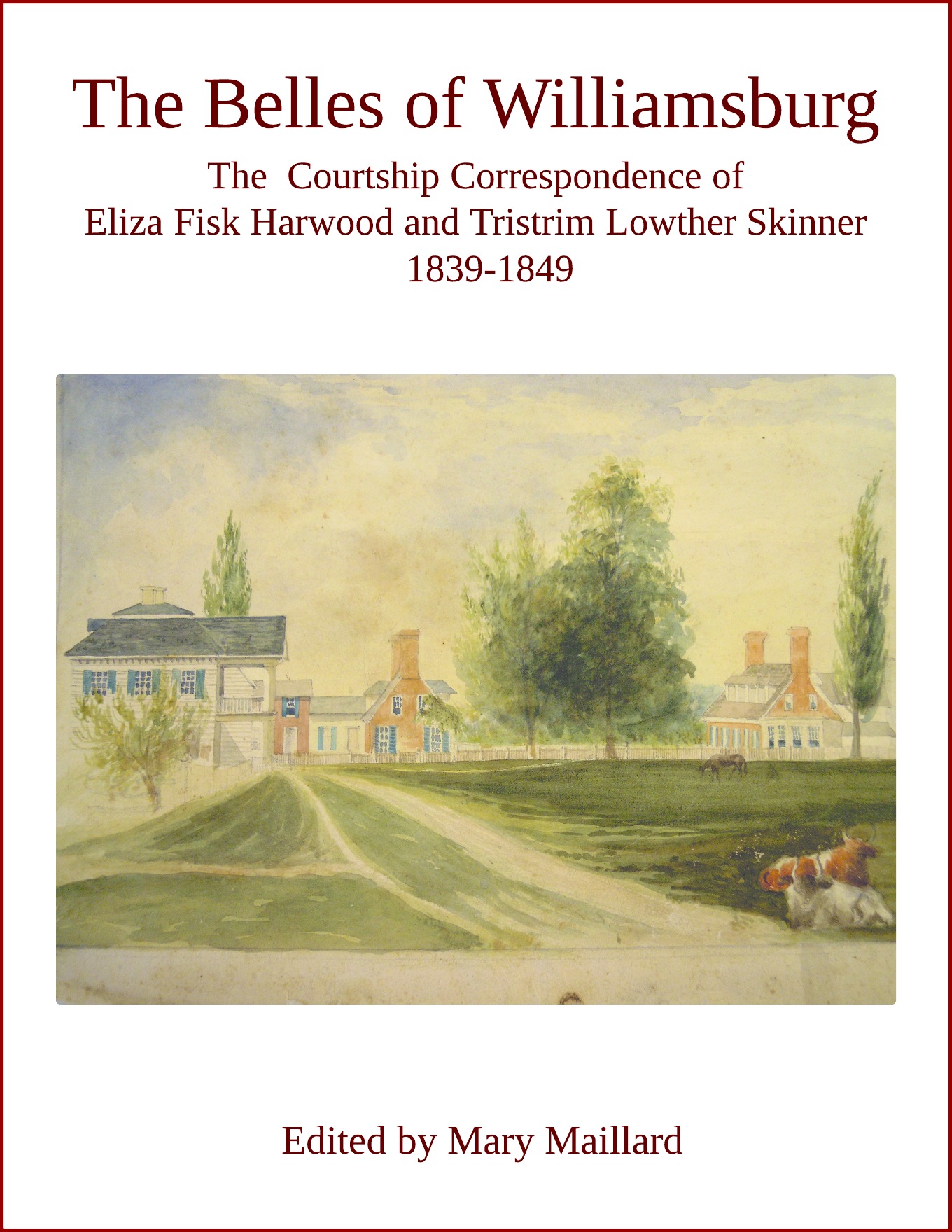Harveys Neck March 28th 1846
My dear Miss Eliza—
On the 25th of last month I wrote to you, and I cannot think that you would have permitted so long a time to pass without answering, if you had received, my letter – I have therefore thought of late, that to the many evils caused me by the opening event of this blustering month, I must add that of having intercepted my letter on its way to you. It ought, by the regular course of the mail, to have left Norfolk in the day of the storm – and I have imagined that the mail for Hampton, if sent, may have been lost, & if not sent, the high tide which overflowed the lower floors of the post office may have destroyed many letters, and among them mine. Now, this may be a more improbable supposition than another which has sometimes entered my mind, but which I have endeavoured not to believe; For it would be ungenerous in me to believe, while it is only a supposition, that you have received my letter, and take so little interest in what is of the greatest importance to me, as to defer answering it until some very convenient occasion.
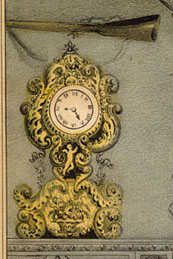 In that letter I said much that I considered very important to me, — and hoped that time and reflection would cause you to think it of importance to you, also. But I have no reason to believe that those agents have wrought any change in your mind which would prove advantageous to me – And I must therefore confess that in writing to you at this time, I am not actuated by the flattering belief that if my letter did not reach its destination, its loss will cause you any regret. Still, I know that so long a silence on my part would surely make you think my conduct but little in keeping with my feelings, and wishes, as expressed to you when I saw you: And it is both my duty and my pleasure to guard against the possibility of such an impression being made on your mind.
In that letter I said much that I considered very important to me, — and hoped that time and reflection would cause you to think it of importance to you, also. But I have no reason to believe that those agents have wrought any change in your mind which would prove advantageous to me – And I must therefore confess that in writing to you at this time, I am not actuated by the flattering belief that if my letter did not reach its destination, its loss will cause you any regret. Still, I know that so long a silence on my part would surely make you think my conduct but little in keeping with my feelings, and wishes, as expressed to you when I saw you: And it is both my duty and my pleasure to guard against the possibility of such an impression being made on your mind.
I know that you cannot doubt the sincerity of all that I said to you. And all that remains, is for you, (if your mind is not entirely decided on the subject) to judge, first, of your willingness, and then, of the possibility, that such a change should take place in your feelings towards me, as will admit of my realizing the hopes which I have so long and so blindly cherished – I cannot expect that such a change should take place immediately, even if all circumstances were favorable to me. But I think that you know both yourself and me, well enough to be able soon to judge of your willingness to such a change.
I shall not attempt to repeat any thing contained in my late letter, except this; and possibly this very portion of it may be the cause of my not having heard from you. I begged of you, as you had consented to correspond with me with such freedom, as to enable each to learn the feelings of the other – that you would place in me that confidence which can proceed from nothing less than true friendship, and write to me as freely as you would speak. I assured you that no eye but mine would, or could, see your letters, and that they should be returned to you, at a word, if you should decide that disappointment should be my lot. I then asked you whether it was the real feeling of your heart, or some doubt, or even fear, lest you should decide improperly in the great step of your life – that caused you to say on more than one occasion, that you thought it better that you should never be married. This, though it may not at first appear to you, an important question, is so, and I hope that you will answer it.
Perhaps you have read this, and thought that if you should write to me at all, you ought to write somewhat in that spirit of confidence; And rather than confide so much in me, you decided not to answer my letter. I am certainly placed in a situation not to be envied by any one. I am even now writing to one whom I sincerely love, and love begetting implicit confidence causes me to express my feelings much more freely than prudence would probably dictate. Not that I fear that you care so little for yourself, or for my feelings as to show my letter, as girls often do, for their amusement – but for the effect which if coldly received it will produce upon you — With you, love is not so powerful as pride – while with me, although I have a good share of the latter, my present course will prove to you which feeling preponderates – But I must close, for I have certainly written enough, (of this,) and even more perhaps than you will wish to read. So, in hopes that you will soon afford me the gratification of hearing from you – and wishing you much, and uninterrupted happiness, – I ask you to accept the love of your faithful friend –
T.L. Skinner
Excerpted from Mary Maillard, ed., The Belles of Williamsburg: The Courtship Correspondence of Eliza Fisk Harwood and Tristrim Lowther Skinner 1839-1849 copyright © Mary Maillard.

